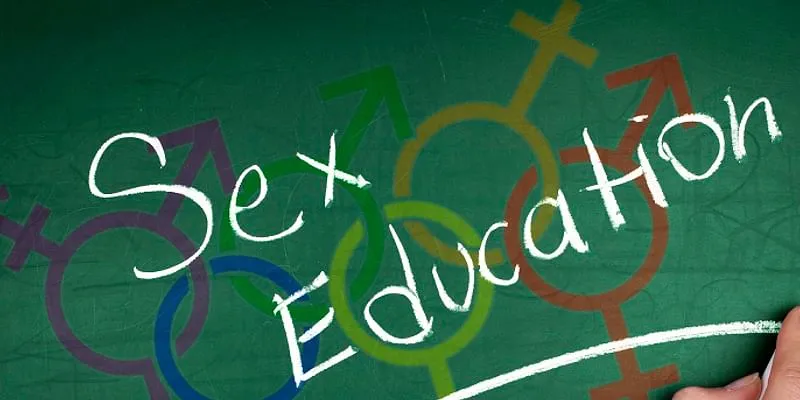Sex education 101: How this NGO is equipping teachers, educators to talk to adolescents about their sexual health
The Population Foundation of India’s course on adolescent reproductive and sexual health aims at training educators to provide accurate, age-appropriate and culturally suitable information to students.
Adolescence is a transitional and transformational period for children as they navigate their way from childhood to adulthood. Young people experience many changes – both externally and internally, in terms of their bodies, emotions, and the environment around them.
The World Health Organisation (WHO) recommends that adolescents need sexual health and counselling services by building knowledge and skills with the help of guardians and teachers.
However, in India, sex education is not compulsory in schools, with many states like Uttar Pradesh banning it altogether.
However, this has had a direct impact on sexual awareness. According to a study conducted by Chandra Shekhar Azad University of Agriculture and Technology, 50 percent of rural girls were unaware of the meaning of menstruation as compared to 67 percent of urban girls.
“Young people have a lot of questions but due to widespread stigmatisation on any discussion around sex and sexuality in India, these doubts often go unanswered. When these queries go unanswered, they resort to going to their friends or online, where they may access information that is not accurate or verified. So there’s a clear need to reach out to young people,” Tejwinder Singh Anand, Joint Director – Communications at Population Foundation of India (PFI), tells SocialStory.
This is why PFI decided to start Educately, aimed at being the leading source of information on sexuality in India. Its programme on adolescent reproductive and sexual health – ‘ARSH For You’ – trains educators on providing accurate, age-appropriate and culturally suitable information to students.
“Educately was conceived as a one-stop portal and knowledge hub for adolescent health and well-being, where we provide young people and people who interact with them – teachers and parents – with information that is verified and age-appropriate on nutrition, contraception, mental health etc,” he adds.

Spreading awareness around sexual health
Started in August 2020 in English and in January 2021 in Hindi, ‘ARSH For You’ is an online, free of cost and self-based teacher training programme that is aimed at enabling educators to navigate issues that adolescents typically face – such as those concerning their physical growth, emotional wellbeing, mental health, or relationships.
“The role of teachers and educators is really key because they interact with adolescents and students daily and are very well-positioned to provide them with accurate information. That’s why we built the first programme to equip educators with not just knowledge, but also skills and attitudes so that they can relay information in a very reliable and sensitive manner,” Tejwinder says.
Over 4,000 educators are currently enrolled in the programme, with 700+ teachers having finished the course which has an overall length of eight to nine hours.
One of the teachers to have completed the course is Sathish Kumar, the Principal of a private school in a rural part of Erode, Tamil Nadu who has 26 years of experience in teaching.
He explains that the course helps teachers to communicate about the sexual health of adolescents in a way that they would understand. It also helps them prepare for any doubts that the students may have.
“Around a decade ago, there was a child in Class XI who came across a book and couldn’t understand certain words. When I asked the entire class if they’d come across a new word, the child got up and asked the meaning of masturbation in front of his peers. They laughed like anything and he became really embarrassed,” he narrates.
“So when we start speaking about it in the classroom, students – who may not ask questions in front of everyone – may approach us and ask us and clarify their doubts separately,” he adds.
What does the course contain
According to the NGO, Educately’s course contains four modules: gender and identity; growth and change; relationships; and conception and contraception which comes under 'ARSH For You'.
Tejwinder tells that the content of the course is in sync with the school health programme and equips teachers with knowledge on basic information that impacts adolescents such as growth and changes in the body, factors that impact relationships, contraception, etc.
“I was able to know about the various doubts children may have that they do not ask others. Without knowing, children may indulge in certain activities like masturbation or pre-marital sex. So, we were also shown how to make them aware using certain activities like games,” Sathish says.
Girls also may not be able to observe sexual hygiene while growing up – so the course provided us information on what do they have to do and how to keep themselves clean. The course also emphasised telling children why it’s important not to hurt the feelings of transgender persons,” he explains.
The course encourages teachers to have discussions in class, and helps them become comfortable with certain topics like masturbation or wet dreams using activities and case studies that enable them to connect to students and encourage self-learning.
“I’m an English language teacher so I have a lot more opportunities to speak to the children and we have more options to communicate with students. These activities ensure that the students know how to find the right teacher to approach and discuss their problems,” he adds.

Impact
According to PFI, the portal received more than 150,000 visits until September 2021. It also tied up with the Department of Education, Government of Bihar to conduct a pilot in Jehanabad district to train 956 teachers across 163 schools.
So far, 500 teachers have completed the course and received their certificates. The plan is now to scale up the programme in the state.
The NGO is also working with the Uttar Pradesh government to impart the course in a few districts. It has partnered with HCL Academy and is currently working on a mobile app.
Sathish says because his school is in a rural setup, teachers talking directly to students may not just lead to miscommunication and misunderstanding, but may also invite the ire of parents. So, he is planning to invite counsellors and trainers from other areas to come and speak about sexual health in the school.
“Counsellors need to be separately appointed to listen to the children because whatever they might speak, they will be taken more seriously than teachers who don’t have the necessary qualifications,” he explains.
While the course is directed towards equipping educators and school teachers, both Tejwinder and Sathish agree that it can benefit parents as well, who tend not to speak to their children about sexual health. The NGO is currently looking at engaging parents as well.
Edited by Affirunisa Kankudti








